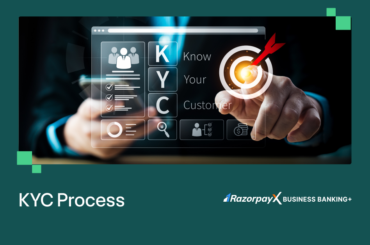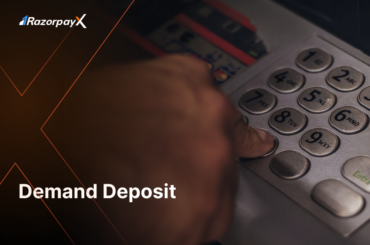Business financing is a critical aspect of starting, maintaining and growing any business. Companies require capital to fund operations, purchase equipment, pay salaries and expand their reach. While there are various financing options available, collateral plays a significant role in determining the loan amount and interest rate offered by lenders. In this blog, we will discuss the pros and cons of collateral in business financing.
What is a collateral in business financing?
Collateral in business financing refers to assets that are pledged as security for a loan. When a business seeks financing, lenders often require collateral as a way to minimise their risk. The collateral serves as a backup source of repayment for the lender in case the borrower is unable to repay the loan.
Collateral can take many forms, including real estate, equipment, inventory, accounts receivable or other tangible assets. In some cases, lenders may also accept intangible assets such as patents, trademarks or copyrights as collateral.
The value of the collateral is typically assessed by the lender to determine the amount of the loan that can be secured against it. If the borrower defaults on the loan, the lender has the right to seize and sell the collateral to recover the outstanding balance of the loan.
It’s important to note that not all types of business financing require collateral. For example, unsecured loans and lines of credit do not require collateral.
Pros of collateral in business financing:
-
Improved lending terms
When a borrower offers collateral, a financial institution is more likely to view them as a low-risk borrower. This is because the lender can recover the loan amount by selling the collateral if the borrower fails to repay. As a result, lenders are more likely to offer better terms on loans, such as lower interest rates, to borrowers with collateral. For instance, secured startup business loans typically have lower interest rates, which can significantly reduce a borrower’s total interest payments, helping them maintain financial discipline for the long term.
-
Large fund disbursal
A collateral-based business loan can be useful for businesses that require a significantly larger amount of credit. This type of loan may be necessary for long-term business planning, such as investing in expansion, or running large-scale advertising and marketing campaigns. Lenders are more likely to approve higher credit amounts if the borrower offers a highly liquid asset with substantial market value as collateral. This allows the lender to protect themselves from financial losses if the borrower defaults on the loan. As a result, a lending institution can provide a large sum of funding without incurring any significant financial risks.
-
Flexible loan tenure
For first-time entrepreneurs in the market, repaying a start-up loan in a short period can be a challenging task. However, having collateral can give them an advantage in this regard. Traditional lenders are more likely to offer a longer repayment period to applicants who pledge valuable assets as collateral. In some cases, this repayment period can stretch up to 30 years, allowing businesses to pay off their debts without facing fiscal strain. A longer repayment period also means that the Equated Monthly Instalment (EMI) amount payable is reduced, which can be beneficial for new enterprises.
-
Funding with a lower credit score
Leading credit information bureaus in India, like TransUnion CIBIL, evaluate borrowers’ past credit behaviour and assign them a credit score ranging from 300 to 900, which determines their creditworthiness. Before approving a loan request, lenders will refer to a business’s credit score to check whether they have a history of repaying obligations on time. An ideal credit score range for loan approval is between 650 and 750.
However, borrowers, especially those seeking MSME loans for new businesses, may not have a high credit score. Loan rejection can further harm their credit score, making it difficult to secure credit in the future. Therefore, these borrowers can opt for secured business loans. Lenders can offer credit funding to borrowers with lower credit scores due to the pledged collateral, which serves as a reliable backup if the borrower fails to repay.
Cons of collateral in business financing:
-
Increasing credit gap
It’s important to note that many businesses operate with limited resources and capital, and may need quick access to cash for essential expenses such as paying salaries or purchasing raw materials. However, these businesses may not have any valuable assets to use as collateral for a loan. As a result, small, micro, and macro industries in India are often viewed as high-risk borrowers by traditional financial institutions. This leads to a significant credit gap, as only 15% of the credit demands of these businesses are met by lenders, resulting in a credit gap of Rs. 25 trillion.
-
Need for high-value assets
When a borrower pledges collateral, the purpose is to protect the lenders from potential losses. To determine whether the requested loan amount is feasible, the lenders will evaluate the market value of the collateral asset. The loan amount provided by the lender is usually a percentage of the asset’s value, and this is done to ensure that any losses from a possible default can be covered by selling the asset. Thus, it’s necessary for the asset to have an adequate loan-to-value (LTV) ratio for the lender to approve the loan. If a business owns assets that are of lower market value, it may not be able to secure a business loan to maintain its operations.
-
Longer application processing period
Typically, it takes a considerable amount of time for a secured business loan application to be approved. This is because the lender usually conducts an independent appraisal of the collateral asset to determine its current market value, which helps determine the maximum loan amount that can be sanctioned. As a result, this time-consuming process can be counterproductive for a business that needs an immediate boost of working capital.
Business Financing with Razorpay Line of Credit
Razorpay Line of Credit is a short-term, collateral-free business loan. The loan is designed to provide immediate liquidity to SMEs and startups to help them manage their short-term working capital needs.
Line of Credit is an unsecured loan, meaning that borrowers do not need to provide any collateral to obtain it. Businesses can get credit up to INR 25,00,000, with a flexible repayment period.
To qualify for Razorpay Line of Credit, businesses must have a minimum annual turnover of INR 20,00,000 and a minimum operational history of 12 months. The loan application process is entirely online. Overall, Razorpay Line of Credit is an attractive option for businesses that need quick access to working capital without the need for collateral.
Frequently Asked Questions
Q1. What kind of business loan is Razorpay Line of Credit?
Ans. Razorpay Line of Credit is a short-term, unsecured business loan.
Q2. Which documents are necessary to sign up for Razorpay Line of Credit?
Ans. To apply for Razorpay Line of Credit, you will need:
- Bank statement of your primary bank account
- Major shareholder KYC documents
- Business KYC documents





